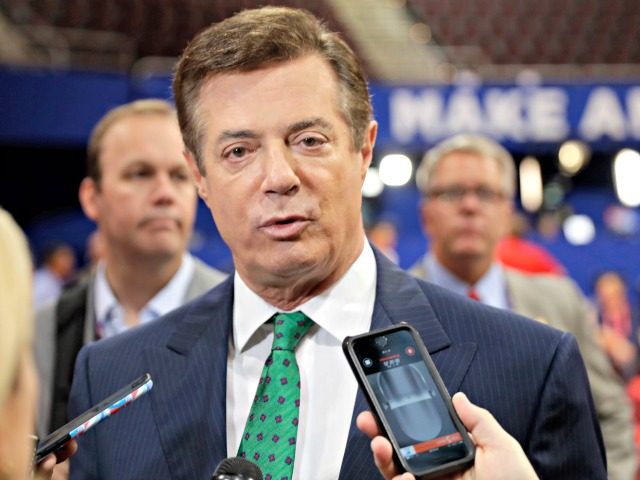Trump critics were delighted after news outlets reported this week that former Trump campaign manager Paul Manafort had shared “polling data” with a “Russian associate” to pass on to a Russian oligarch close to Russian President Vladimir Putin.
However, that delight was short-lived, after those news outlets had to correct their stories.
The New York Times reported Tuesday that Manafort had given long-time business associate Konstantin V. Kilimnik “political polling data” that he wanted sent to Oleg V. Deripaska, the Russian oligarch.
Numerous other news outlets picked up the story. Talking Points Memo’s Josh Marshall wrote in a piece titled, “The ‘Collusion’ Debate Ended Last Night,” specifically seizing on the detail that Manafort wanted the data sent to Deripaska.
“What’s crystal clear is that the transfer to Kilimnik came with explicit instructions to give the information to Deripaska. And that’s enough,” he wrote. “Deripaska is close to Putin and he has zero use for campaign data about a US election, other than to use it for the then on-going Russian campaign to elect Donald Trump.”
However, the next day, the Times and others had to issue a correction.
“Correction: January 9, 2019,” it said, “A previous version of this article misidentified the people to whom Paul Manafort wanted a Russian associate to send polling data. Mr. Manafort wanted the data sent to two Ukrainian oligarchs, Serhiy Lyovochkin and Rinat Akhmetov, not to Oleg V. Deripaska, a Russian oligarch close to the Kremlin.”
TPM posted an “Editor’s Note” that said the Times had made a “major correction and a major error,” but added, “I don’t think it changes the big picture.”
It is also not clear from the reports what the “data” was. The Times acknowledged in their story that “most of the data was public, but some of it was developed by a private polling firm working for the campaign.” It is common for political campaigns to hire firms to conduct their own polling.
Even before the correction, a Republican congressional staffer involved in the Russia investigations scoffed at claims there was now evidence of collusion.
“The treasonous crime has apparently been downgraded from Trump helping Putin hack Democrat emails to Manafort showing a poll to someone. Seems like they’re really scraping the bottom of the barrel in terms of ‘smoking guns,'” the staffer said.
Democrats originally accused the Trump campaign of colluding with Russia to steal and release emails belonging to the Democratic National Committee and Clinton campaign chairman John Podesta in order to influence the election.
Kilimnik is a long-time associate of Manafort’s, stemming back to 2005. As a young man, he served in the Soviet Army as a linguist and later worked for the Washington-based International Republican Institute (IRI) in Moscow.
Kilimnik began working for Manafort’s consulting firm in Ukraine, later running the office. They both did lobbying work for Ukrainian politician Viktor Yanukovych, who successfully became president of Ukraine in 2010.
Special Counsel Robert Mueller indicted Kilimnik in June 2017, but on charges related to Manafort’s lobbying work in Ukraine.
Mueller alleged that Kilimnik had contacted two people from a PR firm that had worked with Manafort on a project to give testimony that would match Manafort’s.
Deripaska is a former client of Manafort’s also stemming back to the mid-2000s. Manafort reportedly had signed a $10 million annual contract with Deripaska, which the Russian oligarch has denied. The relationship soured, and in 2014, Deripaska sued Manafort and business partner Rick Gates for keeping $19 million meant for investment.
Manafort reportedly wanted to offer Deripaska a briefing on the 2016 elections, but the Russian businessman has denied he ever received a briefing or any polling data from Manafort, according to the Washington Post.
Last year, the Times reported that the FBI had unsuccessfully tried to woo Deripaska as an informant between 2014 and 2016, in exchange for helping him obtain U.S. visas.

COMMENTS
Please let us know if you're having issues with commenting.